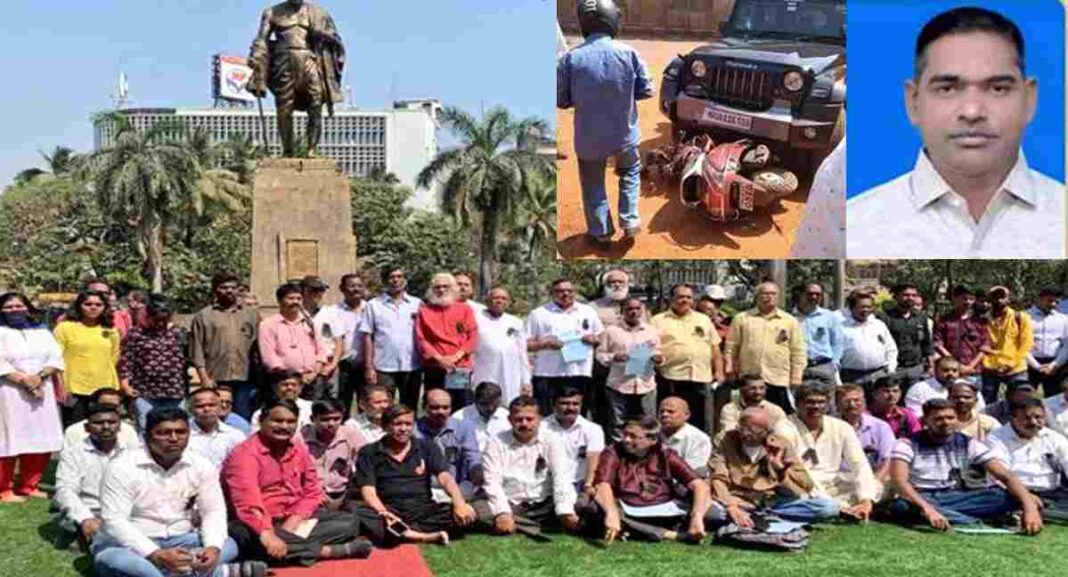INDIA. Mumbai: The alleged murder of journalist Shashikant Warise, a crusader against illegal land grabs and a proposed toxic oil refinery in Ratnagiri, Maharashtra, will be investigated by the Maharashtra Police Special Investigating Team (SIT), Deputy Chief Minister Devendra Fadnavis announced in Mumbai on Saturday.
Warise (45) was allegedly mowed down by a vehicle (SUV) driven by Pandharinath Ambedkar in a brazen head-on collision on February 6 at Kodavali village. He was rushed to Kolhapur in critical condition but could not survive and passed away the next day.
Warise had written a series of articles against the project in the local Marathi daily “Mahanagari Times.” Amberkar, a known hater of protestors against the refinery project, was arrested for culpable homicide (section 308 of the Indian Penal Code) and was remanded to seven days of police custody on February 7. On Saturday, Fadnavis said that the accused would be booked under a murder (IPC 302) charge.
In a first information report (FIR) lodged at the Rajapur police station, Warise’s brother-in-law mentioned that the SUV came in from the wrong side and dashed Warise’s Activa. The collision was so powerful that he was dragged along with his scooter for several meters, leading to severe injuries.
The incident has caused a furore in social and political circles, and journalists’ associations have been staging protests demanding stringent punishment for the accused for the last few days in Maharashtra.
Many politicians have also demanded a thorough probe into the unfortunate incident. The leader of the opposition, NCP leader Ajit Pawar, has sought an investigation into the case. Sanjay Raut, the leader of the Shiv Sena [UBT], has written a letter to Fadnavis to that effect.
On Saturday, Raut said that Fadnavis, during his visit to Angnewadi in Konkan, had said that any opposition to the refinery project would be crushed tooth and nail, and the very next day, Warise was murdered.
The Shiv Sena had forced its then-alliance partner, the BJP, to shelve the project in 2019 due to opposition from locals. However, the Union Petrochemical Ministry began moving the project to the same taluka last year.
The ambitious project of the Bharatiya Janata Party (BJP) government has had opposition from the locals, who fear hazardous chemical effluents would damage their mango agro-industry and fisheries businesses, costing crores of rupees.
After hundreds of prehistoric geoglyphs or petroglyphs, which are sculptures carved on gravel or flat rocks, were found in the area in 2015, it became an important part of history.
These sites were recently surveyed by the Archaeological Survey of India after a local NGO, Nisargyatri Sanstha, spotted them. Now, these geoglyphs said to be over 20,000 years old, are on the tentative list of UNESCO and are likely to be added to the world heritage list.
The $44 billion, six-million-tonne (Rs 3 lakh crore) refinery project was to set up over 16,000 acres of land across 17 villages, with the main refinery at Nanar. It was to be a joint venture among foreign oil companies—Saudi Aramco and the Abu Dhabi National Oil Company; Indian Oil Corporation Limited, Hindustan Petroleum Corporation Limited, and Bharat Petroleum Corporation Limited.
Also Read: German Prosecutors Believe a Woman Murdered a Lookalike to Fake Her Death



